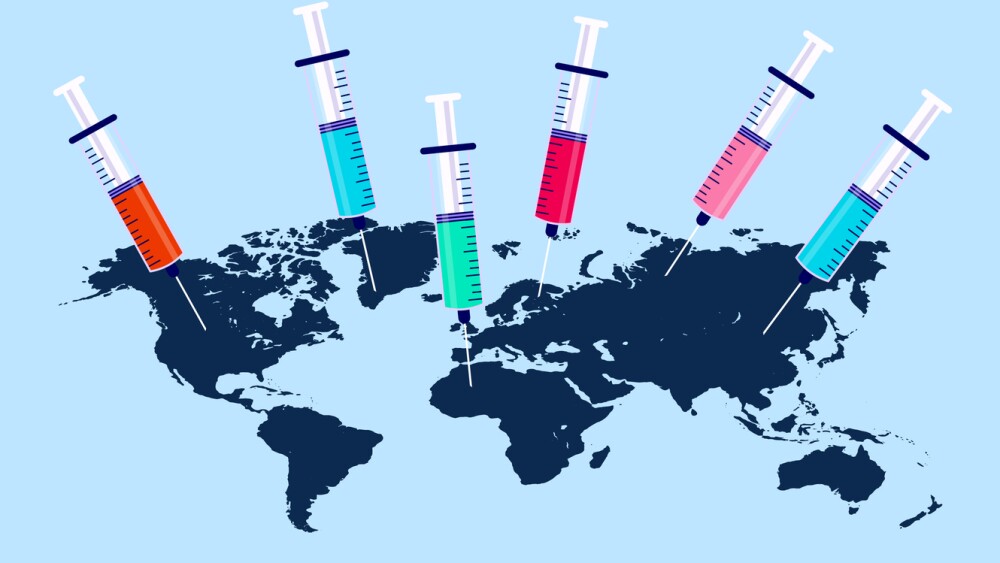RESEARCH TRIANGLE PARK, N.C. & SANTA CLARA, Calif.--(BUSINESS WIRE)--GlaxoSmithKline (NYSE:GSK - News) and XenoPort, Inc. (Nasdaq:XNPT - News) announced today that GSK1838262/XP13512 (gabapentin enacarbil) did not demonstrate a statistically significant improvement compared to placebo as a prophylactic treatment for migraine headaches. This phase 2b dose-ranging study evaluated the efficacy, safety and tolerability of GSK1838262 in adults diagnosed with migraine headache (with or without aura) according to the International Headache Society criteria.
The 30-week, double-blind, placebo-controlled study randomized 526 patients to receive 1200, 1800, 2400 or 3000 mg/day of GSK1838262 or placebo, administered twice daily. The primary efficacy endpoint was the change from baseline in the number of migraine headache days during the last four weeks of treatment prior to taper. GSK1838262 did not demonstrate a statistically significant improvement over placebo on the primary endpoint. The failure of the study may be a consequence of the unexpectedly high placebo response rate observed.
The most common adverse event was dizziness, which was generally mild or moderate and did not lead to discontinuation in the majority of patients. Eight patients who received GSK1838262 and two who received placebo experienced serious adverse events during the trial. Of these events, two were deaths in patients receiving GSK1838262. One was due to bronchopneumonia and was assessed by the investigator as not related to the study drug. The second death resulted from an accidental overdose involving medications other than GSK1838262, but the relationship of this event to the study drug could not be established.
“We are disappointed by the results of GSK1838262 in this clinical setting,” said Atul Pande, M.D., senior vice president, GlaxoSmithKline Neurosciences Medicines Development Center. “Unfortunately, migraine remains an often debilitating and undertreated condition. According to published studies, up to 40 percent of migraine sufferers could benefit from preventative therapies.”
Ronald W. Barrett, Ph.D., chief executive officer of XenoPort, stated, “XenoPort is disappointed by these study results, especially the high placebo response rate, which may have impacted the ability of the trial to detect the potential benefit of GSK1838262 in patients with migraine headaches. We remain committed to working with our partners and regulatory authorities to make this product candidate available to patients with unmet medical needs.”
Migraine is a chronic neurological disorder characterized by recurrent episodes of headache and associated symptoms. The condition affects approximately 30 million people in the U.S. The goals of preventative therapies, also called prophylactic treatment, are to reduce migraine attack frequency, prevent migraine-related disability and improve health-related quality of life.
GSK1838262 is a new chemical entity that is designed to provide dose proportional and sustained exposure of gabapentin by taking advantage of high-capacity transport mechanisms in the gastrointestinal tract. A New Drug Application for GSK1838262 for the treatment of moderate-to-severe primary restless legs syndrome (RLS) is being reviewed by the U.S. Food and Drug Administration (FDA).
GlaxoSmithKline – one of the world’s leading research-based pharmaceutical and healthcare companies – is committed to improving the quality of human life by enabling people to do more, feel better and live longer. For further information go to us.gsk.com, follow us on twitter.com/GSKUS or visit our blog (www.morethanmedicine.us.gsk.com/blog/).
XenoPort is a biopharmaceutical company focused on developing a portfolio of internally discovered product candidates that utilize the body’s natural nutrient transport mechanisms to improve the therapeutic benefits of existing drugs. XenoPort is developing its lead product candidate in partnership with Astellas Pharma Inc. and GSK. XenoPort’s product candidates are being studied for the potential treatment of RLS, neuropathic pain, gastroesophageal reflux disease, spasticity and Parkinson’s disease. To learn more about XenoPort, please visit the Web site at www.XenoPort.com.
XenoPort is a registered trademark of XenoPort, Inc.
GlaxoSmithKline cautionary statement regarding forward-looking statements
Under the safe harbor provisions of the U.S. Private Securities Litigation Reform Act of 1995, GSK cautions investors that any forward-looking statements or projections made by GSK, including those made in this announcement, are subject to risks and uncertainties that may cause actual results to differ materially from those projected. Factors that may affect GSK's operations are described under 'Risk Factors' in the 'Business Review' in the company's Annual Report on Form 20-F for 2009.
XenoPort Forward-Looking Statements
This press release contains "forward-looking" statements, including, without limitation, all statements related to XenoPort’s and its partners’ future development and commercialization of XP13512; the therapeutic and commercial potential of XenoPort’s product candidates; and the regulatory process and the timing thereof. Any statements contained in this press release that are not statements of historical fact may be deemed to be forward-looking statements. Words such as “could,” “may,” "potential" and similar expressions are intended to identify forward-looking statements. These forward-looking statements are based upon XenoPort's current expectations. Forward-looking statements involve risks and uncertainties. XenoPort's actual results and the timing of events could differ materially from those anticipated in such forward-looking statements as a result of these risks and uncertainties, which include, without limitation, the uncertain results and timing of clinical trials; XenoPort’s or its partners’ ability to successfully conduct clinical trials; the uncertainty of the FDA review process and other regulatory requirements; XenoPort' s dependence on its current and additional collaborative partners; and the uncertain therapeutic and commercial value of XenoPort’s product candidates. These and other risk factors are discussed under the heading "Risk Factors " in XenoPort's Quarterly Report on Form 10-Q for the quarter ended March 31, 2010, filed with the Securities and Exchange Commission on May 10, 2010. XenoPort expressly disclaims any obligation or undertaking to release publicly any updates or revisions to any forward-looking statements contained herein to reflect any change in the company's expectations with regard thereto or any change in events, conditions or circumstances on which any such statements are based.




